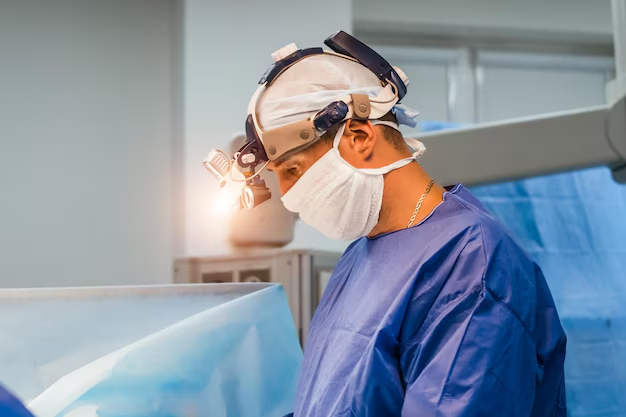Understanding Cataract Surgery: What You Need to Know About the Procedure's Duration
When faced with the prospect of cataract surgery, one of the first questions many people ask is, "How long does the procedure take?" Cataract surgery is one of the most common operations performed worldwide, and while the idea of surgery can be daunting, understanding what to expect can greatly reduce anxiety. This article explores the duration of a cataract operation, providing a comprehensive look at the entire process from preparation to aftercare while offering practical insights for those considering the surgery.
The Anatomy of Cataract Surgery
Cataracts and Their Impact
Cataracts develop when proteins in the eye's natural lens start to clump together, causing cloudy vision. While often associated with aging, cataracts can affect anyone, impairing daily activities like reading or driving. Cataract surgery restores vision by removing the cloudy lens and replacing it with a clear artificial one.
The Surgical Procedure: Quick but Precise
The surgery itself is generally quite straightforward. Here’s what happens:
Pre-Surgery Preparation:
- Patients typically arrive a few hours before the procedure.
- Pre-operative assessments ensure a patient's suitability for surgery.
- Local anesthesia is used to numb the eye, reducing discomfort.
Duration of Surgery:
- The actual surgical procedure usually takes about 10 to 20 minutes.
- The surgeon makes a small incision in the eye, emulsifies the cloudy lens using ultrasound (a process known as phacoemulsification), and replaces it with an intraocular lens (IOL).
Post-Surgery Monitoring:
- After the operation, patients spend some time in a recovery room until they are fit to leave.
- Most are allowed to go home the same day, as long as they have someone to accompany them.
Factors Influencing the Surgery Duration
Patient’s Health and Eye Condition
Not every cataract surgery case is the same. While the average time is relatively short, certain factors can influence the duration:
Complexity of the Case:
- Difficult cataracts due to size or density may require longer surgical time.
Patient’s Overall Health:
- Existing health conditions could affect the surgical approach and recovery.
Type of Cataract:
- Dense or mature cataracts might require additional steps for careful removal.
Surgeon’s Experience and Techniques
The skill and approach of the surgeon can also affect how long the procedure takes. Experienced surgeons may perform the operation more efficiently, reducing time without compromising safety.
Pre-Operative Considerations
Initial Consultation and Eye Evaluation
Before surgery, patients typically undergo a comprehensive eye exam. This ensures the surgery is necessary and helps tailor the procedure to the individual's needs.
Patient Education and Expectations
Understanding what the surgery entails and having realistic expectations are crucial for any patient. Before the surgery:
- Patients learn about the risks and advantages.
- The choice of intraocular lens is discussed, offering options based on their specific vision needs.
Post-Surgery: The Recovery Timeline
Immediate Recovery and Follow-Up
After surgery, patients must rest and avoid strenuous activities. While the eye will start to heal quickly, vision improvements can be immediate:
- First few hours: Some blurriness is normal as the eye adjusts.
- Day 1: Many patients notice significant clarity.
- Follow-up visits: Scheduled to monitor healing and address any issues.
Long-Term Recovery and Care
Health professionals provide detailed guidelines to aid recovery:
- Avoid rubbing the eye: This prevents irritation and infection.
- Use prescribed eye drops: These help speed up healing and reduce inflammation.
- Protective eyewear: Sunglasses or special shields guard against sunlight and injuries.
Adding Context: Comparing Cataract Surgery to Other Procedures
How Cataract Surgery Measures Up
Cataract surgery is often compared to other ophthalmological procedures. While some may take significantly longer or require general anesthesia, cataract surgery’s brief duration and local anesthesia underscore its accessibility and manageability for most patients.
Advantages Over Non-Surgical Treatments
For those eligible, cataract surgery offers a permanent solution compared to temporary fixes like glasses or contacts. This is especially important for those seeking long-term improvement in their quality of life.
Practical Insights and Tips
Prioritize Consultations 🧑⚕️: Speaking with a healthcare provider can clarify doubts, establishing a trusted relationship for pre-and post-surgical phases.
Plan for Recovery Time ⏳: While immediate major tasks can resume quickly, a bit of rest after surgery helps ensure the best outcomes.
Transportation Arrangements 🚗: Ensure transportation to and from the procedure and any follow-up appointments.
Understanding Costs 💰: Insurance often covers cataract surgery, but it’s wise to verify personal costs ahead of time.
Looking Forward: Advances in Cataract Surgery
Technological advancements continue to refine cataract surgery, making it even safer and more effective. Future prospects include:
- Laser-Assisted Techniques: Enhancing precision and outcomes.
- Custom IOLs: Offering tailored visual clarity to meet individual patient lifestyles.
This progress promises even quicker and more efficient procedures, continuing to improve patient experiences worldwide.
Summary of Key Takeaways 📝
Duration of Surgery ⏱️: The procedure typically takes 10 to 20 minutes.
Pre- & Post-Surgical Steps 👨⚕️: Essential preparations and follow-up visits ensure optimal outcomes.
Influencing Factors 🏥: Health conditions and cataract complexity can affect duration.
Recovery & Care 🌈: Follow guidelines for a smooth recovery; expect vision improvements within days.
Future Developments 🚀: Advancements will continue to refine the procedure, offering patients more choice and comfort.
Cataract surgery, while quick, is highly effective, offering a transformative experience for those impacted by cataracts. By understanding the procedure and its implications, patients are equipped to navigate their journey confidently, embracing a clearer, brighter future.

Related Articles
- Are Cataracts Curable
- Are Cataracts Genetic
- Are Cataracts Hereditary
- Are Cataracts Nuclear Sclerosis
- Are Cataracts Painful
- Are Ivizia Eye Drops Okay After Cataract Surgery
- Are You Awake During Cataract Surgery
- Are You Awake For Cataract Surgery
- Are You Put To Sleep For Cataract Surgery
- Are You Sedated For Cataract Surgery
